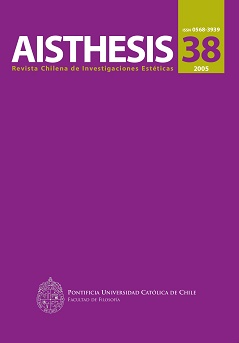Heidegger and the longing for a poetic dwelling
Main Article Content
Abstract
This paper oposes the greek sense of ethos: ‘dwelling place’, ‘open inhabiting domain’, with a space conceived as a calculated and useful device (Gestell), where the Being cannot be redeemed. Heidegger’s later texts present a negative ethics, in tune with the epoch, related to concepts such as technique, deprivation, fall. Dwelling is not feasible in supermarkets, or sacred mountains turned into tourist venues. For Derrida this constitutes ‘Humanist Teleology’. The poet creates the topology for the ‘being-in-the-world’ (Dasein), a dwelling with historic sense for the being to inhabit. He also opens up the inhabiting to the ‘Quaternary’ (Das Geviert) where earth, and the heavens; mortals and divinities dwell. The divine is a persistent ‘going past’ that which is encountered in the quiet and simplicity of the country road.
Downloads
Article Details

This work is licensed under a Creative Commons Attribution-NonCommercial-ShareAlike 4.0 International License.
All contents of this electronic edition are distributed under the Creative Commons license of "Attribución-shareAlike 4.0 Internacional" (CC-BY-SA). Any total or partial reproduction of the material must mention its origin.
The rights of academic works published in this publication belong to their authors., who grant to AISTHESIS: Revista Chilena de Investigaciones Estéticas the license for its use. The management of the permits and the authorization of the publication of the images (or of any material) that contains copyright and its consequent rights of reproduction in this publication is the sole responsibility of the authors of the articles
